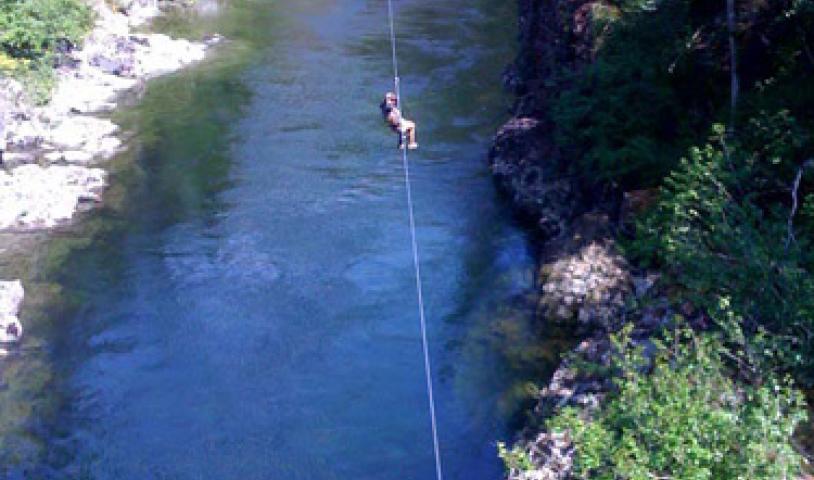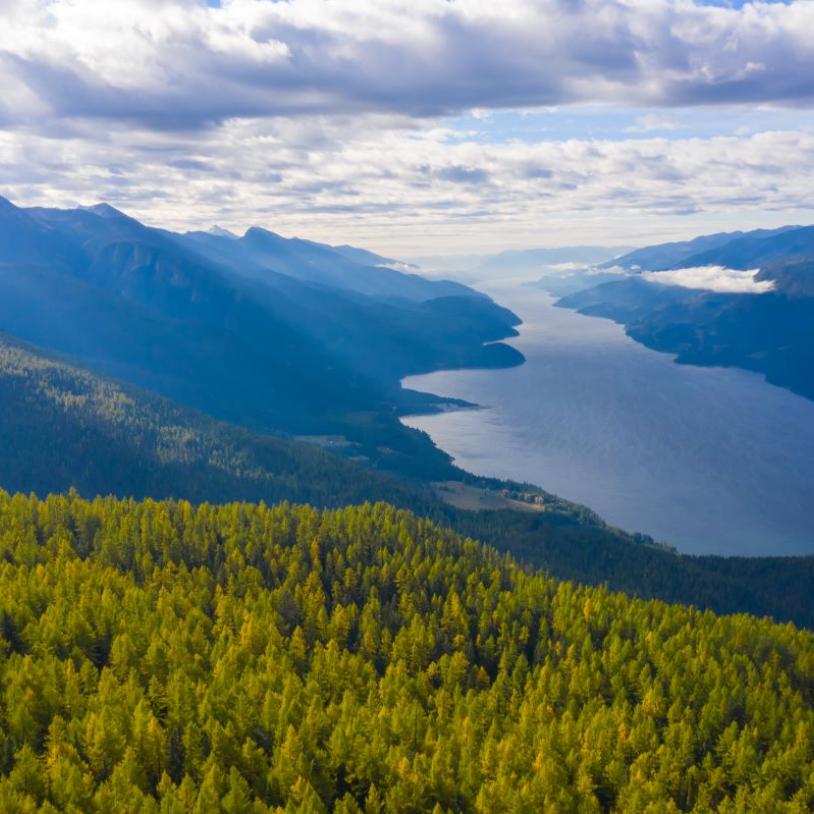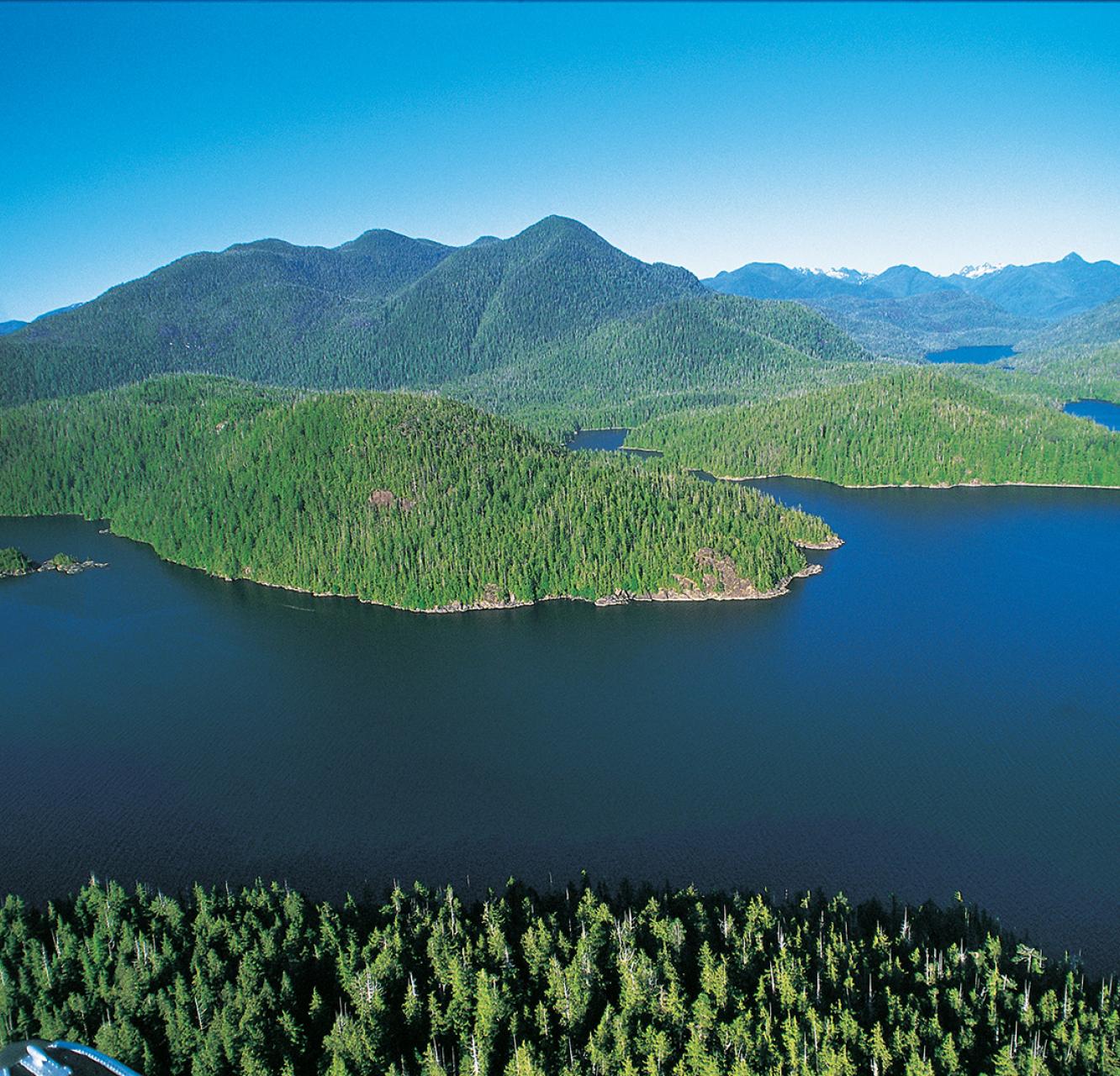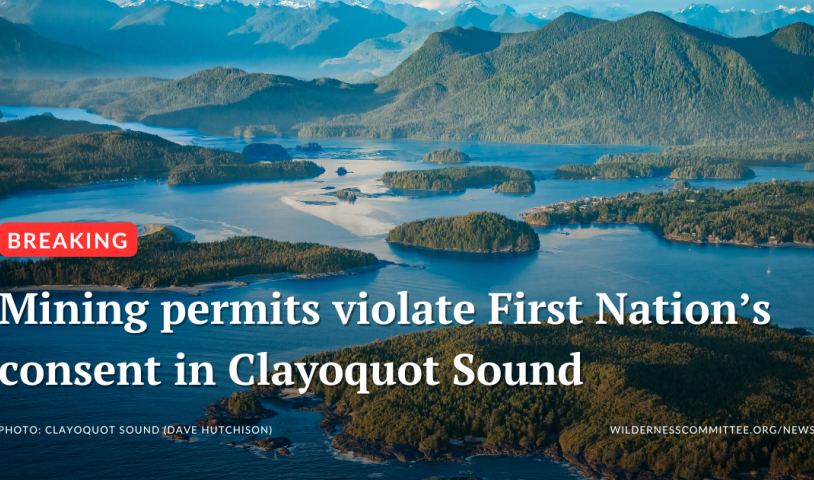Tla‑o‑qui‑aht partner locally to create zipline and kayaking tour as part of greater vision
Tuesday, June 23, 2009
A new zipline and river kayaking tour opening in traditional Tla-o-qui-aht territory this month is an example of how to integrate economy and ecology in a sustainable way, according to one of the First Nations' tribal park project leaders.
It also coincides with the completion of an 18-month Tla-o-qui-aht Tribal Parks Establishment project aimed at getting paperwork together to incorporate a tribal parks society for the First Nation.
Ucluelet-based WestCoast Wild Adventures Ltd. led by Louis Rouleau partnered with the Tla-o-qui-aht to build nine ziplines in Ha'uukmin Tribal Park that takes participants through old-growth cedar forest and down the Kennedy River canyon to Canyon Bridge.
Ha'uukmin is a 500 square kilometre proposed park located in Tla-o-qui-aht traditional territory that follows the boundaries of the Kennedy Lake watershed.
Tribal parks have been designated in Tla-o-qui-aht territory since 1984 but no actual program or organizational development has happened for them since, a tribal parks establishment project leader, Eli Enns, explained.
In March 2007, the Tla-o-qui-aht announced their intention to carry out the establishment project and received funding in part from Parks Canada, the BC Capacity Initiative and the Indigenous Cooperative on the Environment.
Now Enns said they are poised to share the outcome of the project with the world on June 21 at Wickaninnish Interpretive Centre in Pacific Rim National Park Reserve as part of the National Aboriginal Day celebrations being hosted there.
"We're going to have a display with maps and photos, and a salmon barbeque," Enns said. "Now we have everything we need to actually incorporate a society called the Tla-o-qui-aht Tribal Parks Society that will be registered under the societies act."
That means the Tla-o-qui-aht can start hiring staff to manage the land and develop more eco-tourism projects within the First Nations' guiding principles, Enns said.
Those guiding principles look at the relationship between the natural world and humans in a different way.
Enns said the concept of protected areas is founded on the underlying assumption that humans are not part of the natural world.
"Why is it that what humans want to do with a watershed is so unhealthy that we're compelled to protect it from ourselves?" he asked. "We can't just draw lines on a map and say, we'll do whatever we want here, and over here we'll leave it for nature."
He said that is an unhealthy way of looking at the world because what you do on one side of an artificial line affects the other side.
Instead, tribal parks propose a new model where economy develops in ways that respect the environment to create sustainable livelihoods and preserve biodiversity.
"That sets marching orders for what the organization will do," Enns said. "We'll be developing services for the tribal park areas that foster that kind of healthy integration of economy and ecology."
Enns said the zipline and kayaking tours are a great example of that integration and that's why the development with Ucluelet's "Low-Flying Louis" Rouleau felt right.
"He took a very respectful approach," Enns said, referring to Rouleau's close work with the Tla-o-qui-aht. "I think it's a really great example of how these joint ventures should be."
Rouleau was granted an exclusive opportunity for his development in exchange for an agreement that the business would be transferred to the Tla-o-qui-aht within 10 years and that along the way they would be mentored in how to manage it.
WestCoast Wild Adventures opens for three-hour river kayaking tour bookings on June 15.
Jon Schaeffer, the adventure company's operational manager, said they hope to have the zipline safety certified by July 1, when they plan to celebrate with a grand opening traditional potlatch celebration and blessing with the Tla-o-qui-aht.
A portion of each ticket for the tours will be donated to the Tla-o-qui-aht's salmon enhancement project in Canoe Creek to help restore stocks.
Part of the tour will include interpretive information for tourists, co-authored by the Tla-o-qui-aht.
Enns said the interpretive stories are intended to introduce people to a new way of looking at the world.
For example, one story he wrote is about humility and learning to take only what you need.
"When you're in an new experience, you're open to new ideas and that's when we want to talk to people about sustainable livelihoods and encourage a paradigm shift," Enns said.





